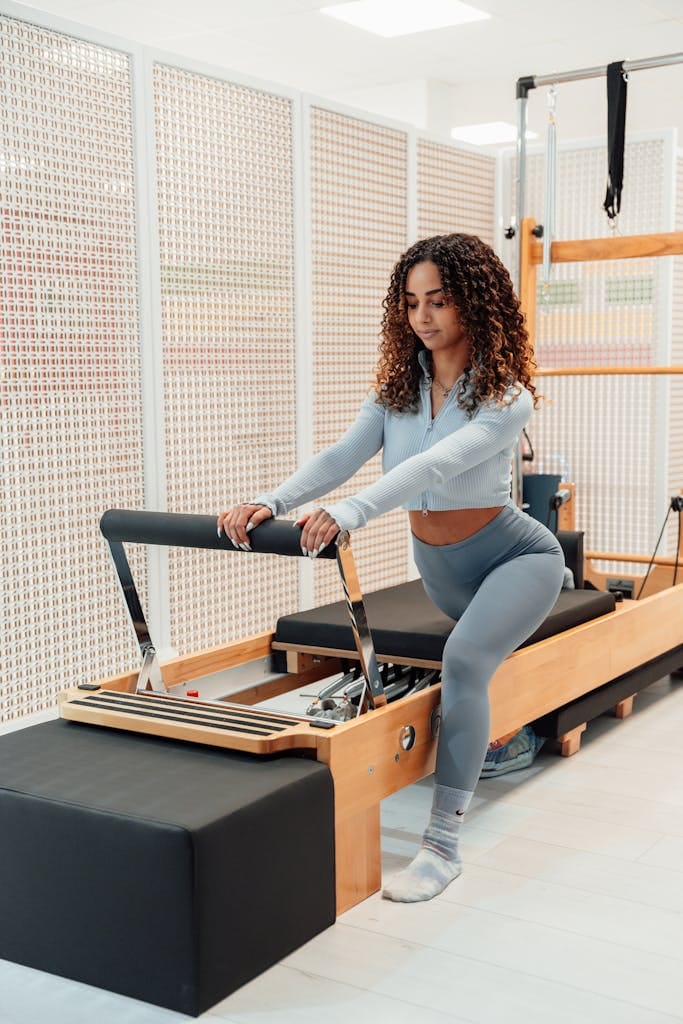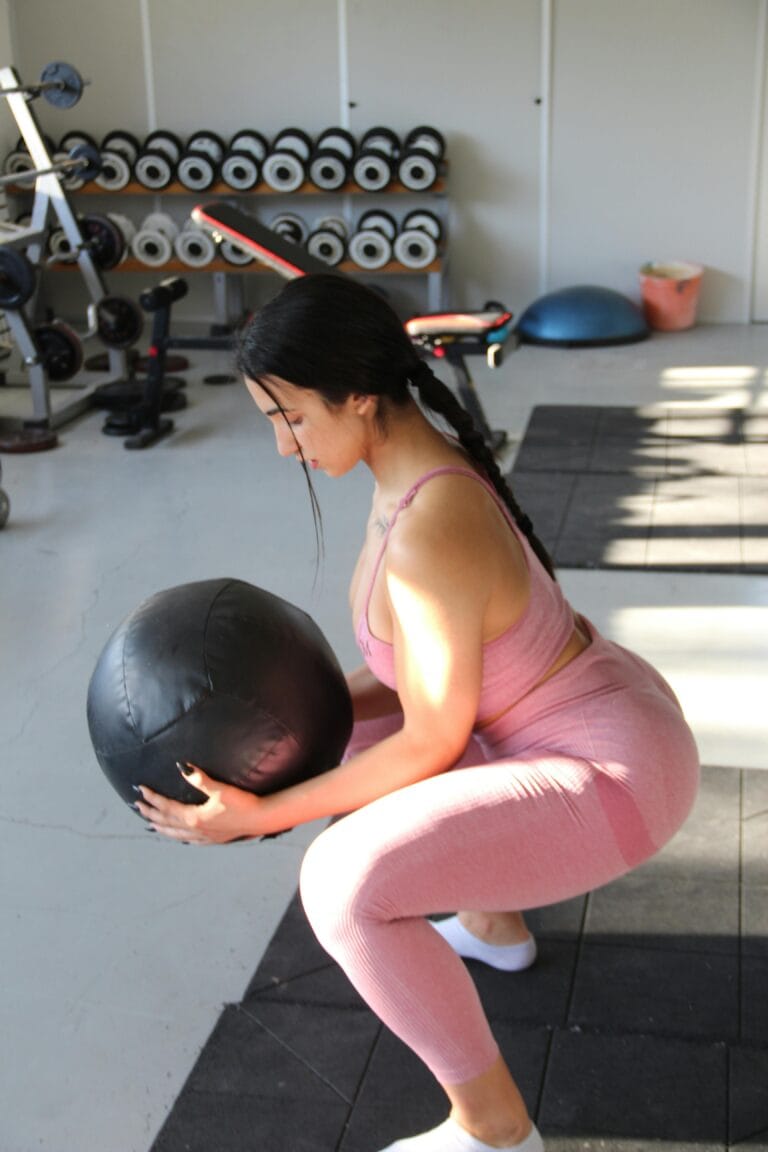FREE SHIPPING OVER $50
Insomnia Cure? Scientists Say This 1 Type of Exercise Guarantees Deep Sleep Tonight

If you spend your nights staring at the clock, battling anxiety, and desperately wishing for true, restorative sleep, you are certainly not alone. Insomnia and poor sleep quality have become a silent epidemic, affecting nearly one-third of adults. You’ve probably tried everything—melatonin, special teas, darkening the room—yet the problem persists. What if the most effective, science-backed insomnia cure isn’t a pill or a potion, but a simple, specific type of exercise?
Scientists say that this 1 type of exercise has demonstrated powerful, consistent results in clinical trials, directly tackling the root causes of restlessness and stress. While all exercise is beneficial, this particular form is uniquely poised to reset your body’s circadian rhythm, reduce stress hormones, and physically prepare your body to enter the deepest stages of sleep. Get ready to discover the secret to guaranteeing deep sleep tonight—it’s time to put your muscles to work.
The Scientific Secret: Resistance Training
The single most effective form of exercise for conquering insomnia and guaranteeing deep sleep tonight, according to a compelling body of research, is Resistance Training (or strength training).
While cardio is fantastic for heart health and mood, resistance training is what delivers the unique physiological benefits necessary to regulate sleep patterns. Studies have repeatedly shown that consistent strength training is superior to aerobic exercise for both improving the quality of sleep and reducing the time it takes to fall asleep.
How Resistance Training Works as an Insomnia Cure
Resistance training affects sleep through three key biological pathways, making it the ultimate tool for holistic health:
- Reduces Restless Legs (RLS) and Physical Discomfort: By building strong, stable muscles, resistance training significantly reduces chronic aches and pains that commonly disrupt sleep. It also helps manage conditions like RLS, which often plague those struggling with insomnia. A body that feels strong and comfortable is a body ready to rest.
- Regulates Serotonin and Melatonin: Building muscle is a metabolically demanding process. During the repair phase after a strength workout, the body optimizes its hormonal balance. Specifically, it can boost serotonin production (the precursor to the sleep hormone melatonin) and optimize its release later in the day, directly resetting the body’s natural sleep-wake cycle.
- Burns Off Cortisol (Stress Hormone): Resistance training acts as a powerful stress reliever. By providing a controlled, intense physical outlet, you effectively burn off the excess cortisol (the stress hormone) that keeps your mind racing at night. When done consistently, it lowers baseline stress levels, which is a major factor in chronic insomnia.
The Muscle-Sleep Connection: Guaranteeing Deep Sleep
The most important impact of resistance training is its ability to increase the amount of Slow-Wave Sleep (SWS), often called deep sleep.
Deep sleep is the most physically restorative stage of sleep. It is when your body physically repairs tissues, strengthens the immune system, and consolidates memory. For those struggling with insomnia, SWS is often fleeting or non-existent.
Scientists say that resistance training increases the need for SWS because the muscle tissue requires repair from the work done during the day. When you damage muscle fibers during a workout, your body literally prioritizes deep sleep that night to release the necessary growth hormones and initiate cellular repair. This creates a powerful, natural demand for the most restful stage of sleep, providing a kind of insomnia cure through biological necessity.
Your Resistance Training Plan for Better Sleep
You don’t need to become a bodybuilder to reap these benefits. The key is consistency and focusing on multi-joint, compound movements that engage the most muscle groups.
The Sleep-Boosting Schedule
To maximize the sleep benefits, aim for 3 to 4 days of resistance training per week.
- Timing is Key: While any time is better than none, experts say that workouts completed mid-day or late afternoon are ideal for sleep. Intense exercise too close to bedtime (within 2 hours) can raise your core temperature and stimulate the nervous system too much, counteracting the sleep benefits.
- Focus on Compound Moves: Compound exercises use multiple joints and recruit the most muscle mass, maximizing the restorative demand on your body later that night.
- Prioritize Full-Body Routines: Work your largest muscle groups—legs, back, and chest—to create the biggest metabolic demand that forces deep sleep repair.
4 Essential Resistance Moves for Insomnia
- Squats or Lunges: Targets the glutes, quads, and hamstrings. These are the largest muscle groups, creating the greatest SWS demand.
- Push-Ups or Dumbbell Chest Press: Works the chest, shoulders, and triceps.
- Rows (Dumbbell or Band): Targets the back muscles, which are vital for posture and reducing chronic back pain that disturbs sleep.
- Plank: A powerful isometric core move that stabilizes the spine and reduces the physical discomfort often associated with restless nights.
Perform 3 sets of 10-15 repetitions for each exercise. You can use dumbbells, kettlebells, or just your own bodyweight. Consistency, not crushing yourself, is the ultimate goal here.
Holistic Health and Sleep
While resistance training is the 1 type of exercise that most effectively improves deep sleep, maximizing your results requires integrating smart health habits.
1. Optimize Magnesium Intake
Magnesium is an essential mineral for both muscle recovery and sleep. It helps regulate the neurotransmitter GABA, which promotes calmness and quiets the nervous system. Since resistance training depletes Magnesium stores, supplementing (or eating more Magnesium-rich foods like almonds, spinach, and avocados) after your workout can enhance muscle repair and drastically improve your ability to relax and fall asleep.
2. The Post-Workout Cool-Down
Finish every workout with 5 to 10 minutes of gentle stretching and deep breathing. This signals to your body that the stressful work is over, lowers your heart rate, and shifts your nervous system into the calming parasympathetic state—a prerequisite for sound sleep.
3. Maintain Core Temperature
Your body must cool down to initiate sleep. Resistance training naturally elevates your core temperature. A warm bath or shower about 90 minutes before bed, followed by time in a cool room, can accelerate this cooling process, helping you guarantee deep sleep tonight.
Activating Your Natural Sleep Cure
The science is compelling: resistance training is the 1 type of exercise that stands above the rest for those struggling with insomnia. By creating a physical need for repair, this exercise forces your body to prioritize the deep sleep necessary for true restoration.
If you want to stop chasing fleeting remedies and start guaranteeing deep sleep tonight, commit to a consistent strength training routine 3 to 4 days a week. Pair your lifts with smart health habits like adequate Magnesium and proper timing. You have the power to activate your body’s most effective, natural insomnia cure and reclaim the peaceful, restorative rest you deserve.
Related Articles
- Trainers Swear By This 20-Minute Walk Trick to Melt Belly Fat Fast—No Gym Needed
- Stop Doing Planks! The 5 Bodyweight Moves That Guarantee a Smaller Waist After 40
- Pilates Trainer Drops Her Go-To 5-Minute Core Workout—And It’s All About the Weights
- This Bodyweight Move Builds a Stronger Backside Than Deadlifts—And Boosts Flexibility Too
- These 5 Pelvic Floor Exercises Can Transform Your Core, Bladder, and Bedroom—And Most Men Have No Idea







